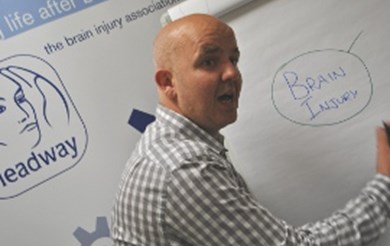The report, Too Many to Count, is the first study in the UK to explore the prevalence of brain injury in people who have experienced domestic abuse, who have accessed community-based services.
Charlotte Curness manages Headway’s own Justice Programme, which seeks to raise awareness of brain injury among offender populations while supporting people those affected.
Reacting to the study, Charlotte said:
“With one in three women experiencing domestic abuse in their lifetime, this important study provides further evidence of the need for professionals to recognise brain injury and its impact on people experiencing intimate partner violence (IPV).
“The hidden effects of brain injury can have a detrimental impact on a survivor’s ability to leave an abusive relationship, as well as their capacity to keep themselves safe. Not only does this have implications for how professionals work with survivors and victims, but also in their assessment of risk for perpetrators of IPV.
“More understanding and awareness is vital in this area and Brainkind’s research is an important and welcome step forward.”
Brainkind spoke to 60 women, 55% of whom screened positive for a history indicative of brain injury.
Other findings included:
· 80% of participants who had experienced domestic abuse had suffered a serious blow to the head.
· 75% of participants who had experienced domestic abuse had been held at least once in a way that prevented them from breathing.
· People who screened positive for a history indicative of brain injury were more likely to experience moderate to severe post-concussion symptoms, low mood and post-traumatic stress.
Through its Justice Programme, Headway has developed an IPV and brain injury training programme for staff working with survivors and victims.
This equips professionals with the knowledge and skills needed to provide gender-specific and trauma-responsive services to individuals with a history of domestic abuse and acquired brain injuries.
In addition, training for professionals working with perpetrators of IPV has also been developed. This aims to give staff, such as Probation Officers, an understanding of the consequences of brain injury and how these should inform safeguarding considerations and risk management in the community.
Back












